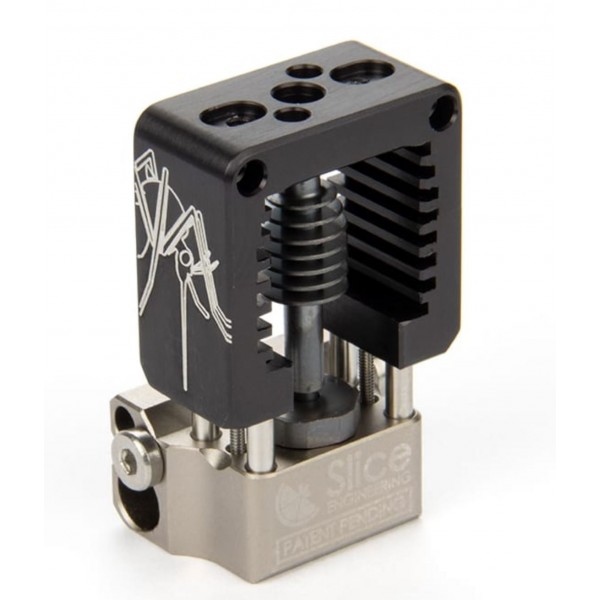





Revised version
Superior heat break performance
Increased structural rigidity
Larger temperature operating range
Modular/adaptable to almost any FFF/FDM printer
Ideal for multi-extrusion systems
Lightweight

Privacy Policy

Delivery Policy

Terms and Conditions
Seasoned hobbyists, innovators, and creators take it in stride when they’re struck with a vision of what they could build. Especially when they know that with the Mosquito hotend, their 3D printer can deliver the highest resolution and take on engineering-grade plastics that other desktop printers can’t come close to. With minimal layer lines and extreme precision, your vision is about to become reality. A beautiful reality.
By engineering-grade plastics, we’re talking printing at temperatures up to 450°c. That means you can print car parts, medical devices, and whatever else you can dream up, and you don’t have to buy an over-sized (and overpriced) printer to do the job.
How did we accomplish this?
By re-imagining how a hotend is designed and structured from the ground up. The materials in each part of the Mosquito have been hand selected to perform a specific task to optimize your printer’s performance with three goals in mind: lightning speed, beautiful resolution, and increased durability.
The Mosquito is adaptable to virtually any printer, so by swapping one component, you gain the high performance benefits of a printer worth thousands more. Since the Mosquito (designed for beauty) and Mosquito Magnum (designed for speed) are the same length, any combination of these hotends can be mounted to one carriage. So you can switch between high-flow and high-precision in the same print.
Oh yeah, and you can change the nozzle with one hand.
Are you ready to see your vision fully realized?
Mosquito is only available for 1.75 mm filament at this time.
ADDITIONAL DETAILS: